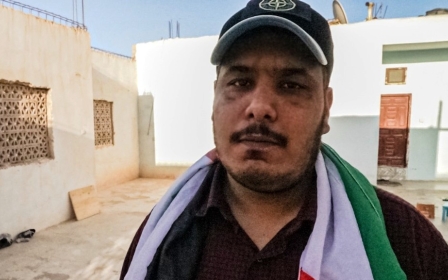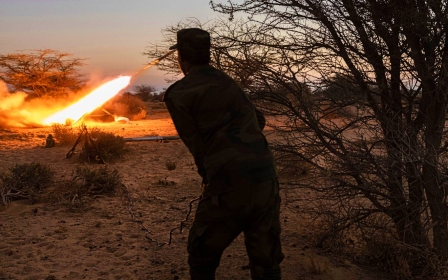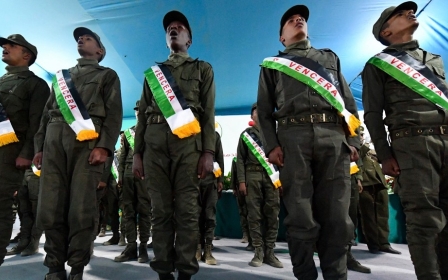Western Sahara: ECJ ruling against EU-Morocco trade deal hailed as 'legal victory'

Campaigners from Western Sahara have welcomed a ruling by the EU Court of Justice (ECJ) declaring that a trade deal between the European Union and Morocco over fishing rights breached their right to self-determination.
The sustainable fisheries partnership agreement concluded between the EU and Morocco entered into force on 18 July 2019 and covers territory in the Western Sahara.
Occupied by Morocco since 1975, the territory has been claimed by the native Sahrawis, while the Algeria-backed Polisario Front has fought against the Moroccan state for independence for decades.
Hundreds of thousands of Sahrawi refugees live across the border in camps in southwestern Algeria, while independence campaigners in Western Sahara have faced repeated repression by Moroccan authorities.
The ECJ ruling declared that the process "did not concern the people of Western Sahara but the inhabitants who are currently present in that territory, irrespective of whether or not they belong to the people of Western Sahara."
New MEE newsletter: Jerusalem Dispatch
Sign up to get the latest insights and analysis on Israel-Palestine, alongside Turkey Unpacked and other MEE newsletters
"As a significant proportion of that people now lives outside that territory, that consultation process was not such as to establish such consent on the part of that people," it explained.
It added that produce such as melons and tomatoes that came from the Western Sahara must be labelled as such in Europe so as to avoid "misleading" customers.
The ECJ ruling was welcomed by the Polisario Front as a "legal victory" for the Sahrawi people.
'It is a victory of universal justice and a strong message to illegal occupiers and companies which resort to piracy and fraud in order to plunder oppressed people's natural resources'
- Sidi Breika, Polisario Front
"It is a victory of universal justice and a strong message to illegal occupiers and companies which resort to piracy and fraud in order to plunder oppressed people's natural resources," Sidi Breika, the group's representative to the UK, told Middle East Eye.
He praised the action of Polisario lawyers and campaigners in Europe for bringing pressure on the EU over the issue.
"We remember late Polisario senior member Emhamed Khadad, may he rest in peace, who always believed in the justness of our question and deployed a tremendous effort, time and dedication for the sake of our legitimate legal battle against the powerful EU, with all its lobbies and resources," he said.
The ruling comes after a period of difficulty for Sahrawi independence advocates, as world powers have increasingly thrown their weight behind Morocco's claim.
In 2021, the US agreed to recognise Moroccan sovereignty over the Western Sahara in exchange for the kingdom recognising Israel.
Spain and France have also both announced their support for a Morocco-proposed autonomy plan that Sahrawis have denounced as denying them their sovereignty.
The EU responded to Friday's ruling saying it regarded its strategic partnership with Morocco as "long-standing, vast and profound", with a spokesperson noting that the ECJ granted 12 months before executing the verdict to avoid "serious negative consequences for the external action of the Union".
A spokesperson for the Moroccan Foreign Ministry directed MEE to a statement in which the kingdom said it was "in no way concerned" by the ECJ ruling.
"The content of this decision contains obvious legal errors and suspicious errors of fact, this denotes, at best, a total ignorance of the case's realities, if not blatant political bias," said the statement.
Middle East Eye delivers independent and unrivalled coverage and analysis of the Middle East, North Africa and beyond. To learn more about republishing this content and the associated fees, please fill out this form. More about MEE can be found here.




